#restification
Photo

Where am I? #travel #travelphotography #restification #littlemermaid #beachlife #nyc #harlem #luxynow #luxury https://www.instagram.com/p/Ci8STh7OIVO/?igshid=NGJjMDIxMWI=
0 notes
Photo
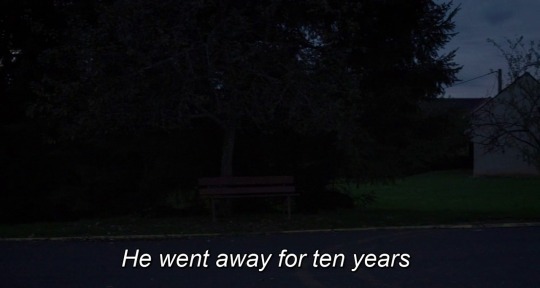
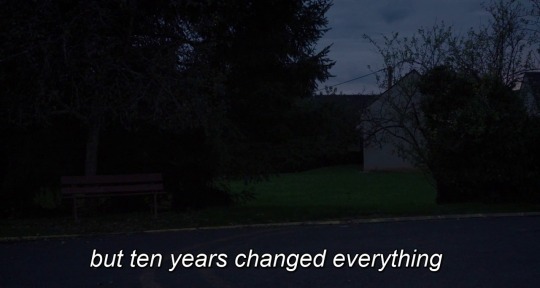

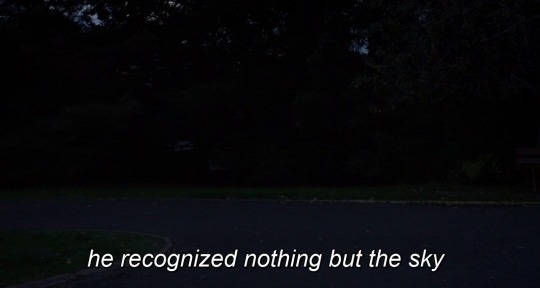
Jours de France [4 Days in France] (Jérôme Reybaud - 2016)
#Jours de France#4 Days in France#Jérôme Reybaud#Paris#Nathalie Richard#Pascal Cervo#Arthur Igual#Fabienne Babe#Liliane Montevecchi#Laetitia Dosch#2010s cinema#France#Nicolas Restif de La Bretonne#Henri Thomas#French movies#casual encounters#LGBTQIA+#Val de Loire#gay road movie#male homosexuality#anonymity#strangers#relationships#sky#memories
14 notes
·
View notes
Text
Alexandra Bircken et Lutz Huelle œuvrent respectivement depuis l’art et la mode. Une exposition les réunit, ainsi qu’un troisième comparse, le photographe Wolfgang Tillmans, à partir d’une histoire d’amitié adolescente. Et une commune énergie, comme un geste d’exposition, d’en découdre avec les assignations de genre et les séparations de médiums.
Text by Ingrid Luquet-Gad on Les Inrocks
On les connaît respectivement comme plasticienne et créateur de mode. Alexandra Bircken et Lutz Huelle se sont chacun·e fait un nom, respectivement dans l’art et la mode. À la Fondation Pernod Ricard, ce qui se montre est un flux commun qui les rassemble : une Pensée corps, le titre de l’exposition confiée à la curatrice Claire Le Restif, la directrice du…

View On WordPress
3 notes
·
View notes
Text
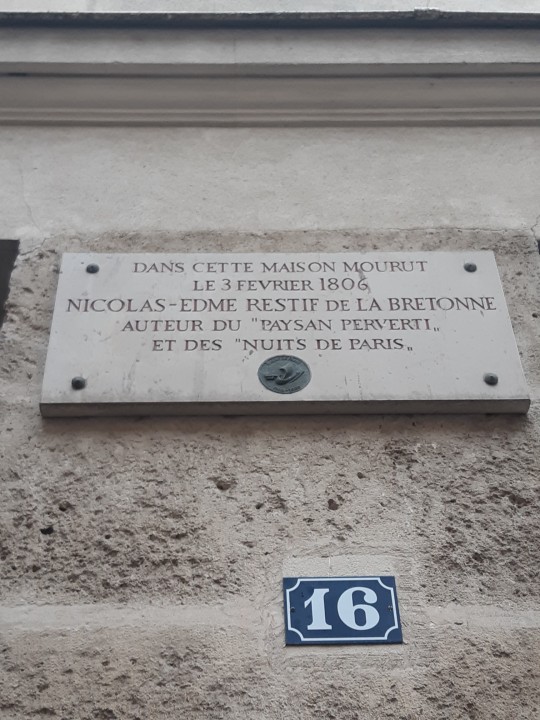

Plaque en hommage à : Nicolas Edme Restif de la Bretonne
Type : Lieu de décès
Adresse : 16 rue de la Bûcherie, 75005 Paris, France
Date de pose :
Texte : Dans cette maison mourut le 3 février 1806 Nicolas-Edme Restif de la Bretonne, auteur du "Paysan perverti" et des "Nuits de Paris"
Quelques précisions : Nicolas Edme Restif de la Bretonne (1734-1806) est un écrivain français. Privé d'une vie au service de la religion en raison de son trop grand intérêt pour les femmes, il se tourne vers la littérature et commence sa carrière dans les années 1760. Il publie des œuvres très diverses, parfois considérées comme pornographiques, et s'essaie également à la philosophie. Arrêté pendant la Révolution française, il y survit néanmoins et en propose son propre témoignage, quoi qu'il ne fasse pas particulièrement montre d'un quelconque véritable engagement politique. Ruiné malgré ses nombreuses sollicitations d'aides auprès des autorités, il meurt de maladie.
2 notes
·
View notes
Text
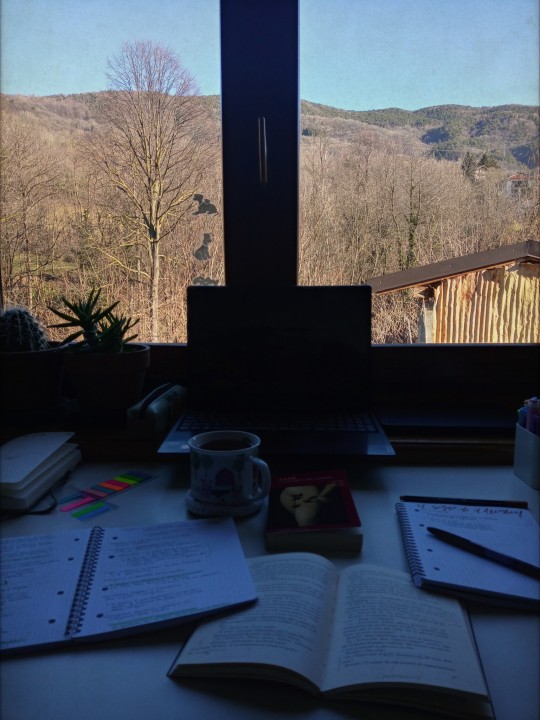
23|01|2024
I am pretty confident with my study plan, I have been quite productive in the past few days and I am planning to do as much as I can this week. The goal is to be done with my more structured tasks by Friday, so that I can take the entire weekend off to rest, and then dedicate the next week to reviewing everything multiple times. I think I should be able to get to this goal, and I am very much looking forward do having two whole days to do absolutely nothing.
calm hobbit winter activities and productivity:
read first thing in the morning
finished fixing a few pages of notes I forgot about yesterday
reread and annotated important passages of The Pornographer by Restif De La Bretonne
reread and annotated important passages of D'Alembert's Dream by Denis Diderot
started to reread and annotate important passages of The Philosophy In The Boudoir by Sade
daily Irish practice on duolingo
continued my tma relistening and my witcher rewatch
📖:A Day Of Fallen Night by Samantha Shannon, Genderqueer And Non-Binary Genders edited by Meg-John Barker, Walter Pierre Bouman, Christina Richards (this book has been in my book purgatory aka my currently reading shelves for 2 whole years, and I decided this is the time to get back to it and finally finish it)
#studyblr#studyinspo#uniblr#university#journal#journaling#productivity#studying#calm hobbit winter#study space#student life#knife gang#mine#the---hermit
64 notes
·
View notes
Text

Dissolvi remure e pudori con languida indecenza e del tuo imbarazzo nutri i miei desideri più nascosti…
Restif Delabre
54 notes
·
View notes
Text
I was really expecting the change in the tone of slang in the 18th century to relate to the climate leading up to the French Revolution, but apparently Hugo just thought that criminals lost their sense of morality? It’s a strange take.
A note on Restif de la Bretonne: according to Donougher’s notes, he was called the “Rousseau of the gutter” and a prolific writer. He focused on the lower classes, particularly on sex workers, and was known for both his political writings and for writing explicitly about sex. Hugo’s critique of him may be linked to his communist politics, as Hugo saw that as a threat to productivity that couldn’t actually cure social ills (hence why he critiques his ideas as leading to social unrest and misguiding people in a way that leads to collapse rather than reform).
But then there was the French Revolution! To Hugo, this offered a real chance at reform and, through that, a solution. If people actually had hope and saw a material improvement in their conditions, then they could channel their rage into that change, no longer “deceived” by other ideas. Here, Hugo’s both justifying the Revolution and presenting an implicit threat: without the Revolution, envy would lead to random violence, and that random violence might return if its promises aren’t kept.
10 notes
·
View notes
Photo

La mente incatena a mani libere.
Sublime paradosso dell'appartenere.
Restif Delabre
60 notes
·
View notes
Text

La nudità è un dono,
quella della mente è un privilegio,
quella dell'animo è rarità.
- Restif Delabre
©Alex Maxim photography
107 notes
·
View notes
Text
Timid and melancholic argot transforms into something shameless and jovial in the eighteenth century. There’s more imagery related to mines and miners here, with processes happening underground, imperceptible on the surface, Restif de La Bretonne, who “excavated in the masses the most unhealthy gallery” and so on. After the significant effort put into rehabilitating argot in the previous chapters, Hugo now condemns “the laughing argot,” presenting it as something potentially dangerous.
Oh, I like how he interprets what was going on in the eighteenth century. Of course, it was not the Enlightenment itself or the philosophes to blame for the transformation of argot. They were all about light and progress. The blame lies with some sophists. Hugo unintentionally touches on a valid point: the philosophes were too elitist to care about reaching the masses. They were more interested in educating the public which is not synonymous with the common people or the masses. In fact, they often disdained the masses. Oh, the things they wrote about the people, presenting them as conservative, most loyal subjects of the monarch! Hugo laments that their writings were banned or even burned, but the public was not particularly interested in them (except for Rousseau, this guy was a real bestselling star), they wanted to read trashy fiction which is now really forgotten. They did not want to be educated, instead they developed “low taste” in literature: pornography, soapy romances, and scandalous revelations. And Restif de La Bretonne was on a high end of this literature. (Robert Darnton has much to say about the forbidden bestsellers of the Ancien Régime.) Some of these texts incited “the hatred of the unfortunate classes lights its torch at some aggrieved or ill-made spirit which dreams in a corner, and sets itself to the scrutiny of society. The scrutiny of hatred is a terrible thing.” This hatred and fear can lead to what Hugo calls “jacqueries.”
And then Hugo shifts attention to Revolutions vs. jacqueries. Chapters about the June revolt are coming soon, and it’s time to remind readers why revolutions are inherently honourable and good. Hugo suggests that the eighteenth century could have ended with a jacquerie if not for the French Revolution. A jacquerie embodies chaos, unchecked violence, revenge, and destruction. In contrast, the revolution, according to Hugo, is moral and lawful, albeit cruel. While this idea might sound good in theory, Hugo may be idealizing the impact of the revolution on the nineteenth century a bit too much! The closing image of barefooted rag-pickers guarding the treasure is quite utopian. I suppose that the conclusion might be that argot cannot have the same destructive impact of inciting people to jacqueries anymore. Or maybe I got it wrong.
7 notes
·
View notes
Photo



Jours de France [4 Days in France] (Jérôme Reybaud - 2016)
#Jours de France#4 Days in France#Jérôme Reybaud#Paris#Nathalie Richard#Pascal Cervo#Arthur Igual#Fabienne Babe#Liliane Montevecchi#Laetitia Dosch#2010s cinema#France#Nicolas Restif de La Bretonne#Henri Thomas#French movies#casual encounters#LGBTQIA+#Val de Loire#gay road movie#male homosexuality#anonymity#strangers#relationships
16 notes
·
View notes
Text
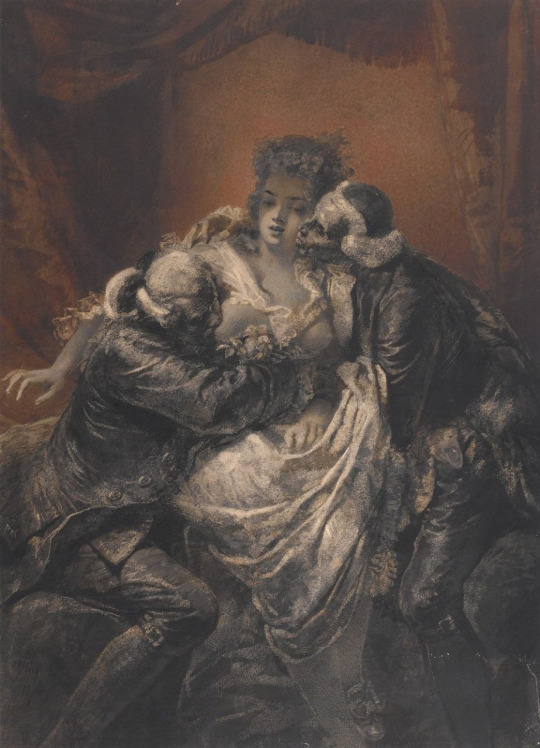
« La dépravation suit le progrès des Lumières. Chose très naturelle que les hommes ne puissent s’éclairer sans se corrompre. »
Restif de La Bretonne, Le Pornographe (1770)
5 notes
·
View notes
Text
The exhibition La pensée corps brings together the work of Alexandra Bircken and Lutz Huelle, both of whom are linked to questions of identity, intimacy, permeability and vulnerability of the human being. What links them is a style with forms that are alternately fractured and assembled, cut and sutured, and a long history of friendship.
This exhibition is not about the relationship between art and fashion, even though it is a natural one. The focus is on the mechanisms, the gestures, the thinking of the contemporary body and our experience of it as human beings. Both sectionalise and fractionalise objects and clothes as adjustable models for new ways of living, feeling and representing.
This essential relationship to the body…

View On WordPress
2 notes
·
View notes
Text
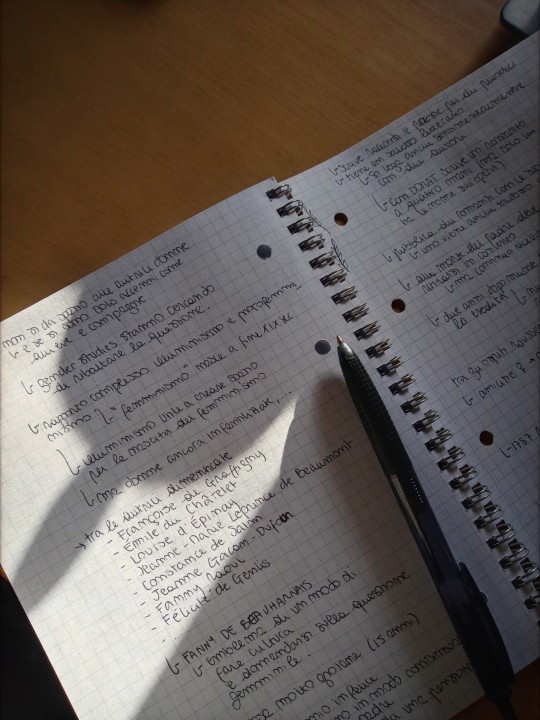
18|01|2024
Today was a very productive day, which makes me happy. I am quite tired and I really need to take tomorrow off. I am excited to spend time with my friend but I won't lie if it were up to me right now I rather have a quite alone day doing nothing to get back my energies. But I know this is mostly my unrest talking and tomorrow I will definitely have a good time.
calm hobbit winter activities and productivity:
read first thing in the morning
watched and annotated the last recorded lecture of my philosophy class
started reading The Pornographer by La Bretonne, which is the last book I have to work on for my philosophy class (I read 36% in a little over half a day, so hopefully I will finish it sooner than I anticipated)
daily Irish practice on duolingo
continued my tma relistening and my witcher rewatch (ya creature needs escapism rn)
tried crocheting a tiny sheep for my friend
i will prep everything I'll need for tomorrow tonight, so that in the morning I'll be able to take it easy
📖: A Day Of Fallen Night by Samatha Shannon, The Pornographer by Restif De La Bretonne
#studyblr#studyinspo#uniblr#university#journal#journaling#studying#productivity#notebook#knife gang#calm hobbit winter#mine#the---hermit
63 notes
·
View notes
Text


Dissolvi remure e pudori con languida indecenza e del tuo imbarazzo nutri i miei desideri più nascosti…
Restif Delabre
186 notes
·
View notes
Photo

https://archive.org/details/AAFiles4546/page/n15/mode/2up
The Perec with whom I drifted was connected to a deep knowledge of the city, a knowledge that was atavistic to him. He was the passe-murailles , he existed but did so just through his drifting - as all his work shows. To start with, Perec was a man of the city, not a man of the countryside - he profoundly disliked the countryside. He was, in fact, what we might describe as an urban nomad, and the urban nomad is by definition political. That was the case with Restif de la Bretonne, the first drifter, as well as with Walter Benjamin and Guy Debord. And I would say that there is a tragic dimension in Perec’s work, not simply one of play and poetics. Perec and I were children of the war.
3 notes
·
View notes